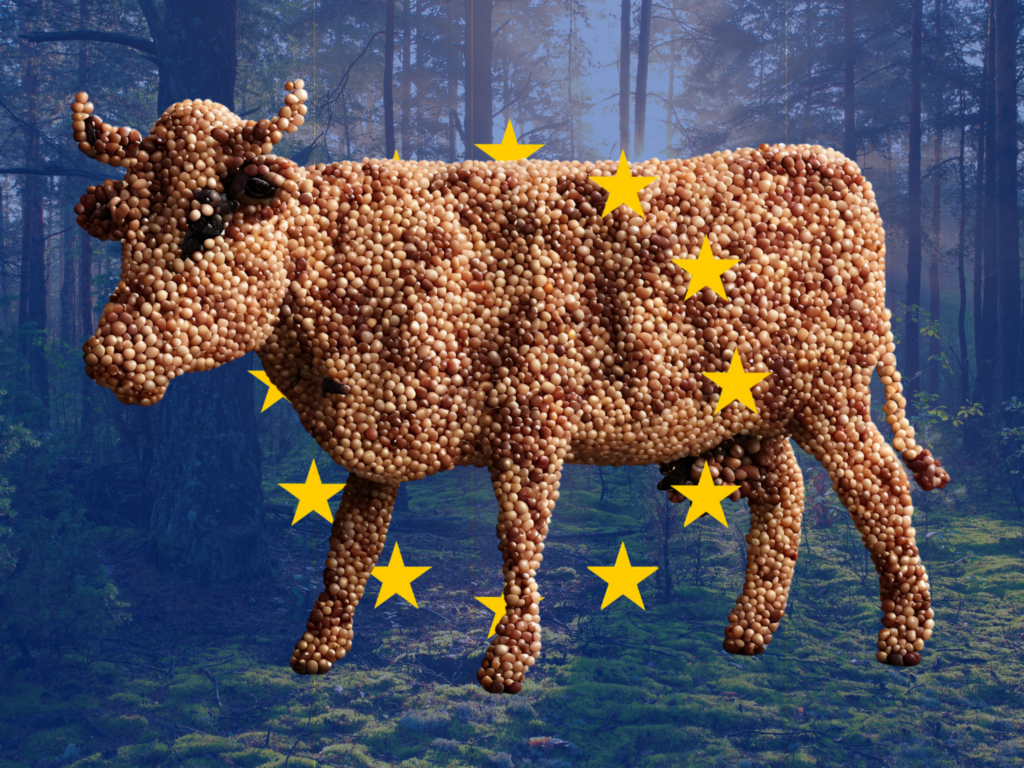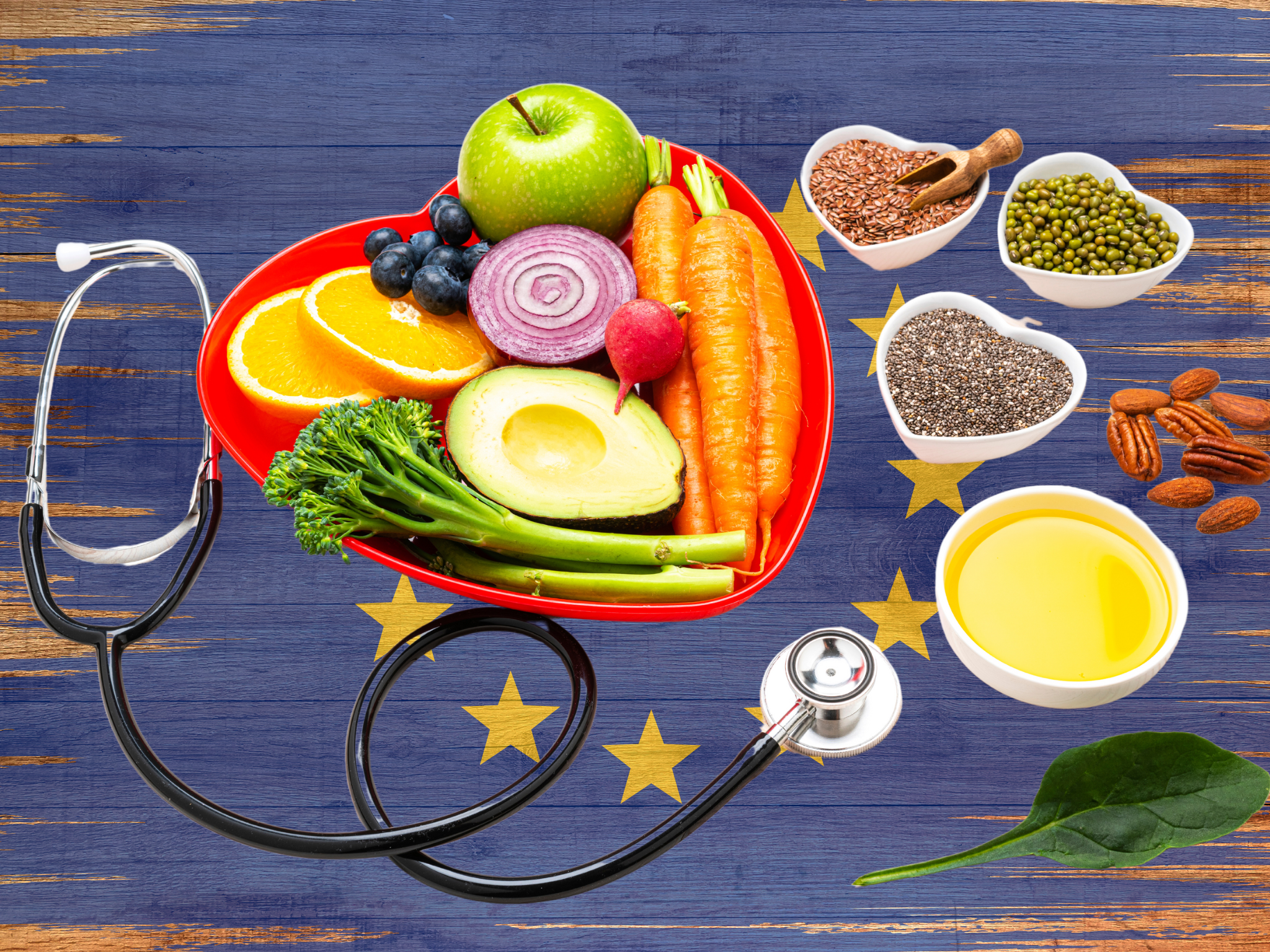Doctors Urge EU Leaders to Promote Healthy & Sustainable Diets in Agrifood Policy
6 Mins Read
After being shunned from the EU’s strategic dialogue on food and farming, health organisations are asking for representation on the Commission’s new agrifood board.
A week after the EU Commission put out a call for membership in the brand-new European Board on Agriculture and Food (EBAF), one group is asking not to be shut out of policy discussions.
European health organisations representing millions of patients, doctors and nutritionists have written an open letter to several newly elected EU Commissioners – including agrifood chief Christophe Hansen, health and animal welfare chief Olivér Várhelyi, and climate commissioner Wopke Hoekstra – to prioritise preventative policies and promote healthy and sustainable diets in the region’s food and farming vision.
The groups – which include the European Public Health Alliance, the European Stroke Organisation, Caring Doctors, and Federazione Nutrizionisti Professionisti, among others – bemoaned the “lack of health representation” in recent agrifood policy discourse of late, particularly the Strategic Dialogue on the Future of EU Agriculture.
“Since we, despite our requests, did not have the chance to contribute to this dialogue, we are taking the initiative to write to you to underline the urgency of centring health considerations in discussions about the future of food and agriculture,” they write in the letter.
Why are health groups writing to the EU?

The Strategic Dialogue was a long process that culminated in a 56-page report that called for an overhaul of the EU’s food system, particularly policies that would decarbonise and futureproof the farm sector. A group including both farm lobbies and green groups concluded that it was important to support a transition to alternative proteins, asking the Commission to develop an EU Action Plan for Plant-Based Foods by 2026.
Ursula von der Leyen, who began her second term as EU Commission president this month, had said these recommendations would feed into an agricultural policy roadmap the executive arm would reveal within the first 100 days of her tenure.
But her new agrifood commissioner, Christophe Hansen, poured cold water on the Strategic Dialogue’s advice in his confirmation hearing, saying it was “rather a vague formulation” and needed to be discussed in greater detail. He stated that the Commission wouldn’t publish a new framework for sustainable food systems, but acknowledged the need for greater plant protein production – only to go to livestock feed, however.
And last week, the EU Commission formally set up the EBAF, which is expected to provide “high-level advice” on the follow-up of the Strategic Dialogue report and contribute to von der Leyen’s vision for agriculture and food within the 100-day deadline.
Chaired by Hansen, the board won’t have a legislative role, but would instead serve as a sounding board for “certain political ideas and pathways” to ensure that stakeholders are informed and aligned with the policy decisions the Commission will make.
The EU has opened a call for membership applications, seeking balanced representation from three categories of stakeholders: the farm community, other actors in the food supply chain, and civil society (including in areas like climate, animal welfare, and consumer issues).
The coalition of health groups is pressing the Commission to facilitate an inclusive dialogue by accepting their participation in the EBAF, given that €700B of the EU’s annual healthcare budget goes on treating non-communicable diseases, the majority of which are influenced by unhealthy diets
“It would be short-sighted not to include health groups in the conversation about food and the risk of failing to prioritise prevention-focused policies threatens to deepen our existing health crisis. We need systemic change now,” claimed Dr Milka Sokolović, director-general of the European Public Health Alliance.

What does the letter say?
The health groups’ letter implores EU institutions to improve food environments through policy, instead of leaving consumers and the healthcare system to bear the burden of diet-related diseases.
“Most dietary disease drivers are linked to overconsumption, particularly of salt, sugar, saturated fats (found mainly in animal products, but also in palm and coconut oil), and of calories in general,” the letter reads. “Alongside this, people are underconsuming other types of food, like whole grains, fruits, legumes and vegetables, which is further exacerbating health risks.”
The signatories outline the urgent threat posed by antimicrobial resistance, as more than 60% of antibiotics are used for livestock. “Equally important, there are enormous health risks associated with climate change and environmental degradation, not least due to the significant contribution of agriculture and EU food supply chains,” they add.
“A shift in diets – and the food system – is urgent and needed to ensure the health of Europeans. This would put the emphasis on disease prevention over treatment measures, a favourable, cost-effective and structural approach to improve European health.”
The letter argues that previous food-related policy efforts have unfairly and ineffectively placed the responsibility on the consumer to choose healthier food. But the republic has limited power to change consumption patterns, “unlike very large corporations” that shape the food system but are “insufficiently regulated”.
Ready meals are an ‘untapped opportunity’

In the letter, the health representatives ask the EU to implement a number of policies recommended in the Strategic Dialogue. The bloc should introduce mandatory food reformulation policies to improve the health and nutritional profile of processed food, including composition targets for added sugars, salt, saturated fats, and calories.
They also call for updated public procurement rules in favour of healthy and sustainable foods, alongside a revised school meals scheme. Policies restricting the marketing of unhealthy foods to children are requested too, as is legislation on comprehensible and transparent food labelling – an effort that could see the Nutri-Score be made mandatory.
Additionally, the EU is being implored to publish the plant-based action plan and reduce VAT on healthier and more sustainable products, and establish a framework for national food-based dietary guidelines by incorporating the latest scientific literature. This year alone, Germany, Austria, Norway, and Finland have all updated their dietary recommendations to promote a shift to plant-based eating.
One area with significant potential is the nutritional profile of ready meals – a product group that large retailers, fast-food chains and foodservice startups have the most direct influence over. Research has shown that current offerings contain thrice as much salt and twice as much meat as the average EU diet, and aligning them with international health standards could reduce emissions by 48 million tonnes.
“Regulating ready meals could set a powerful example and is at the intersection of the Strategic Dialogue’s recommendations on the upgrade of the public procurement framework, food reformulation policies and food-based dietary guideline updates,” the letter states.
“It could save billions of euros in public healthcare costs, save EU consumers €2.8B every year, and reduce the EU’s carbon footprint significantly.”



